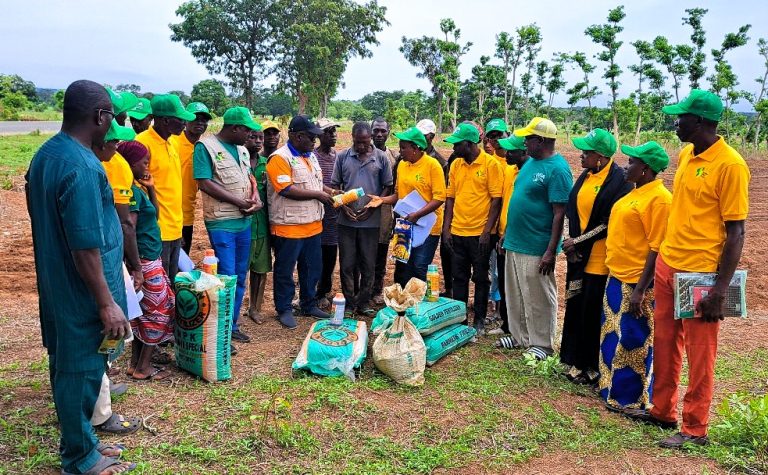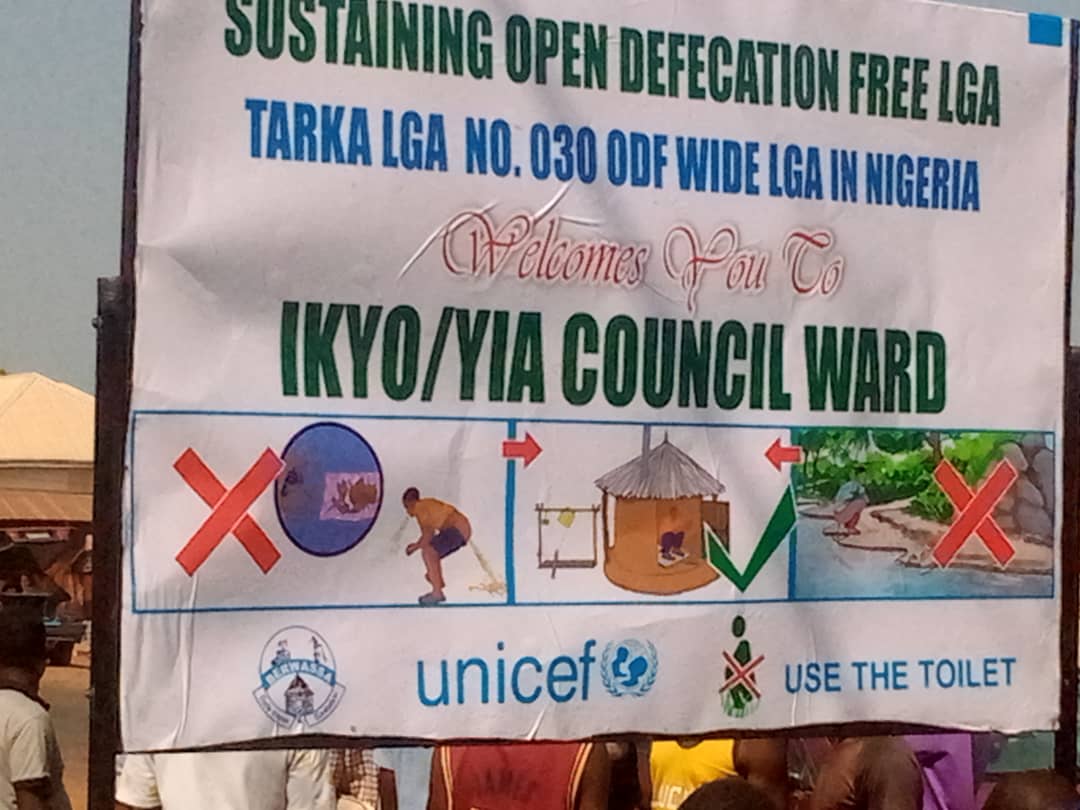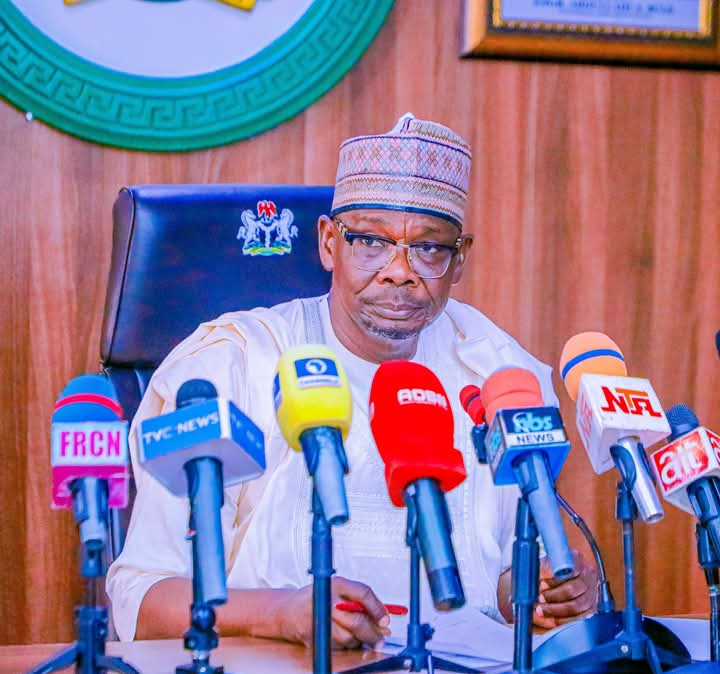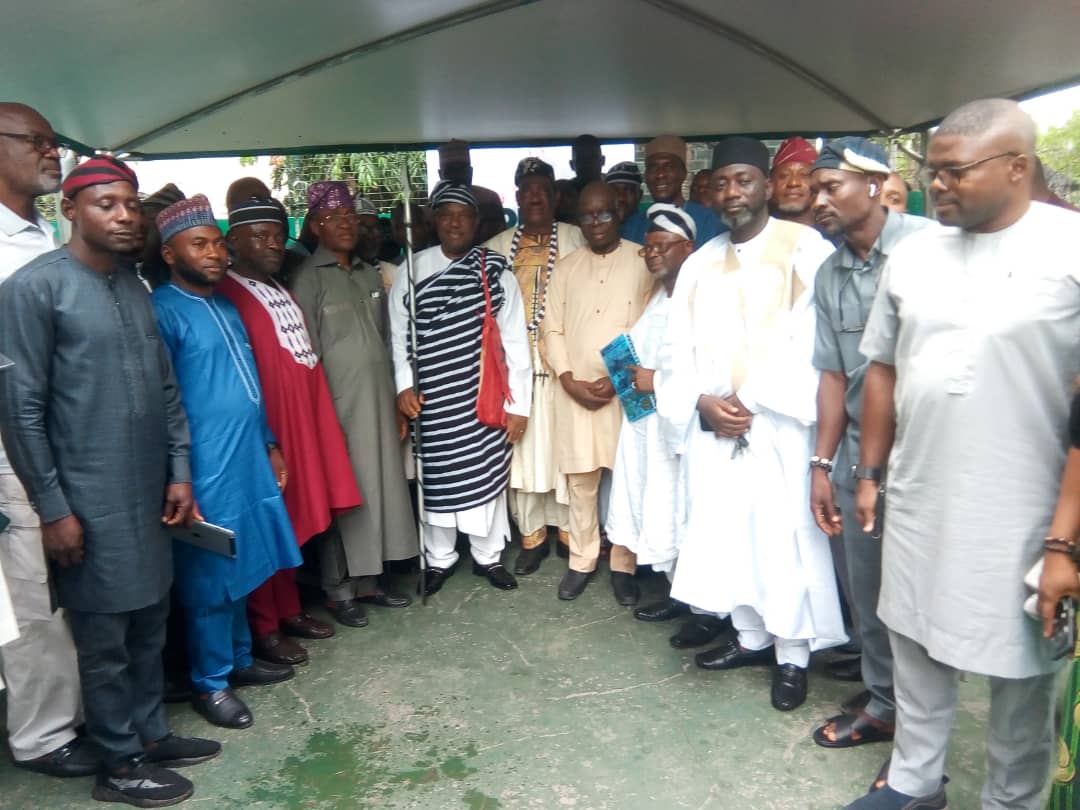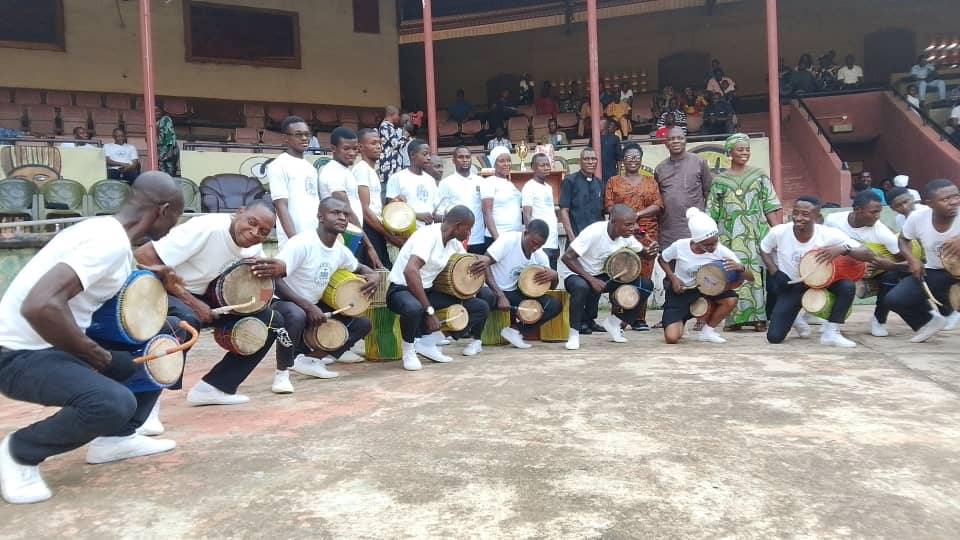The Sasakawa Africa Association (SAA) Nigeria has flagged off the distribution of farm inputs to 9,000 small holder farmers in six states to enhance food security.
A statement issued on Friday and signed by the Communication Officer of SAA, Moses Nongoatse, and made available to The Voice stated that the benefiting States include Kano, Jigawa, Gombe, Nasarawa, Benue, and Kwara.
He said the association has also set up community demonstration plots in some of the benefiting states.
According to him, the initiative, supported by the Nippon Foundation (TNF), aims to enhance food security, boost household incomes, and promote climate-resilient farming practices.
He explained that the exercise, which is part of the 2025 Wet Season farming intervention, targets 9,000 farmers directly and 45,000 indirectly.
He said, “Certified seeds, fertilisers, and agrochemicals were among the inputs being distributed.
” Prior to the distribution, SAA Nigeria conducted a Preseason Training-of-Trainers (ToT) for a total of 116 participants in the intervention states, equipping frontline extension agents with the technical skills needed to cascade regenerative agriculture and other good agronomic practices to farmers.
“As the 2025 wet season farming begins, SAA is setting up 360 community demonstration plots in 90 rural communities across the six states. The plots are Farmer Learning Platforms (FLPs) that showcase regenerative agriculture practices, including intercropping, relay cropping, Urea Deep Placement (UDP), mulching, integrated pest and weed management, soil fertility strategies, and other good agronomic practices tailored to local agro ecological contexts.
“The demonstrations serve as living classrooms, reinforcing SAA’s broader commitment to sustainable agricultural intensification.”
The Communication Officer said the Country Director of SAA, Dr Godwin Atser, while reflecting on the impact of the program, said that for over 30 years, the organisation had been delivering practical innovations that have consistently improved yields.
“Our interventions have consistently improved yields, from 1.9 MT/ha to 5.5 MT/ha in maize and from 1.8 MT/ha to 6 MT/ha in rice production. In the case of soybean and cowpea, yields have improved from 0.6 MT/ha to 2.5 MT/ha. This is a result of blending improved inputs with hands-on extension and community-based learning,” Dr Atser added.
Speaking on the benefits of the exercise to farmers and the productive partnership between SAA Nigeria and the Gombe State Government, the Commissioner for Agriculture, Animal Husbandry, and Cooperatives in Gombe State, Dr Barnabas Malle, said, “SAA has demonstrated a high level of commitment to improving farmers’ livelihoods in our state, contributing to nutrition, food security, and economic development.”
On his part, Dr Farouk Kurawa, Managing Director of the Kano State Agricultural and Rural Development Authority (KNARDA), represented by the SAA Kano state coordinator, Mr Kassim Safiyyanu, said, “Sasakawa’s approach is timely, practical, and results-driven, setting the tone for a productive season and motivating farmers to adopt early planting.”
While appealing to field teams to religiously adhere to the organization’s protocols for demonstration plot establishment, Dr Bello Shehu, Technical Coordinator for Regenerative Agriculture at SAA Nigeria, encouraged farmers to leverage SAA’s extension network to deepen their understanding of regenerative agriculture and build resilience to climate shocks.
Nongoatse said SAA Nigeria’s inclusive, science-based approach combines practical field demonstrations, capacity building, and technology transfer to drive systemic change in Nigeria’s food systems.
He said the organisation is committed to promoting regenerative agriculture, good agronomic practices, and climate-smart innovations at the grassroots level.
“As the 2025 wet season progresses, SAA Nigeria is intensifying the implementation of its wet season program by establishing 360 community demonstration plots across 90 rural communities while strengthening partnerships with government institutions, development partners, and local farming groups,” he concluded.
The Voice reports that SAA is an international non-governmental agricultural extension service provider dedicated to building resilient and sustainable food systems in Africa.
SAA’s mission is to empower small holder farmers through knowledge-sharing and innovation, with a focus on regenerative agriculture, sustainable intensification, and market-oriented production.

